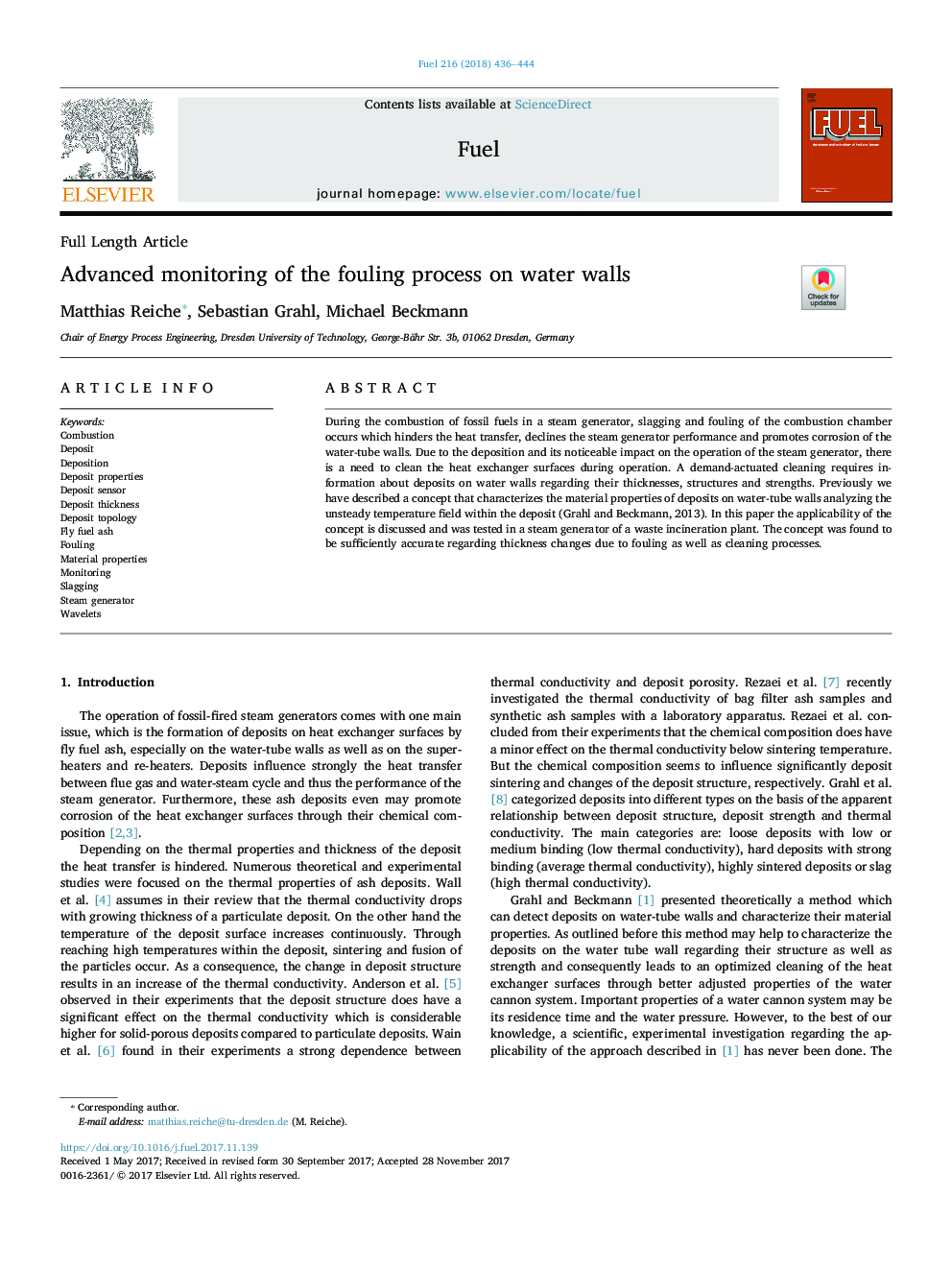| Article ID | Journal | Published Year | Pages | File Type |
|---|---|---|---|---|
| 6632281 | Fuel | 2018 | 9 Pages |
Abstract
During the combustion of fossil fuels in a steam generator, slagging and fouling of the combustion chamber occurs which hinders the heat transfer, declines the steam generator performance and promotes corrosion of the water-tube walls. Due to the deposition and its noticeable impact on the operation of the steam generator, there is a need to clean the heat exchanger surfaces during operation. A demand-actuated cleaning requires information about deposits on water walls regarding their thicknesses, structures and strengths. Previously we have described a concept that characterizes the material properties of deposits on water-tube walls analyzing the unsteady temperature field within the deposit (Grahl and Beckmann, 2013). In this paper the applicability of the concept is discussed and was tested in a steam generator of a waste incineration plant. The concept was found to be sufficiently accurate regarding thickness changes due to fouling as well as cleaning processes.
Keywords
Related Topics
Physical Sciences and Engineering
Chemical Engineering
Chemical Engineering (General)
Authors
Matthias Reiche, Sebastian Grahl, Michael Beckmann,
